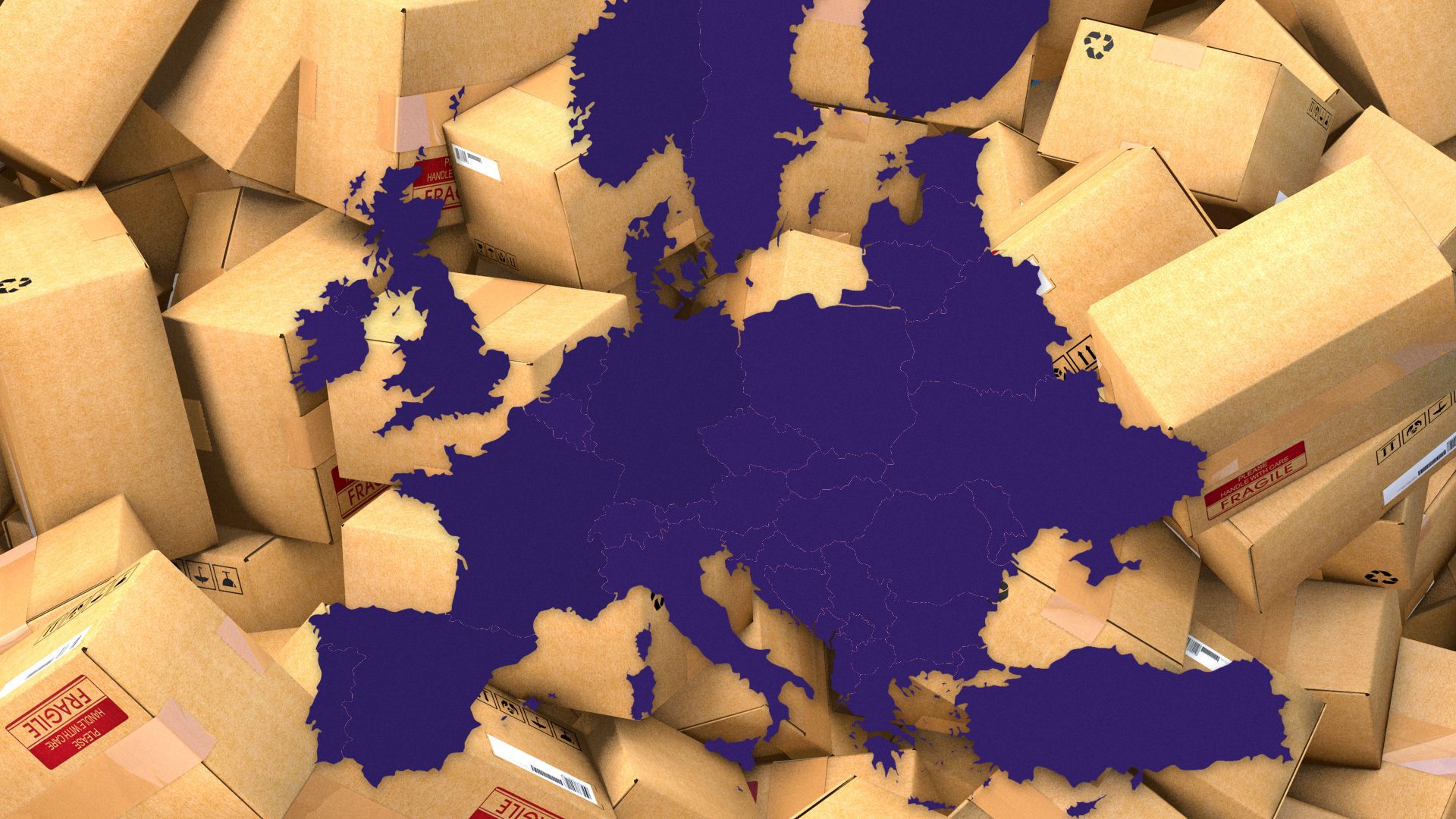UK
Royal Mail’s CEO, Simon Thompson, has admitted that the company is failing in its legal duty to deliver letters on Saturdays. The company’s universal service obligation (USO) legally requires Royal Mail to deliver letters to UK households six days a week and parcels five days a week, but Thompson admitted to a Commons committee that it had not lived up to that for some time. Although the company has been pushing for years for an end to Saturday letter deliveries, which would save an estimated £250m a year, Thompson insisted that failing to deliver was not company policy.
France
At the start of this year the iconic timbre rouge – the red stamp that had long guaranteed next-day delivery with La Poste – was discontinued, with a digital replacement: an e-lettre rouge available for €1.49 (£1.31). To use this, letter writers type their missive into La Poste’s website and it is printed and delivered the next day. Not only has this been criticised in a country where up to 13 million people are thought not to use the internet, but also mocked as in effect reinventing the fax, but slower. Additionally, in March, 68 towns will stop receiving post on a daily basis altogether as part of a new experiment, with deliveries only every other day.
Portugal
CTT, Portugal’s privatised national mail service, faced difficult headlines last year over claims it did not deliver mail on time due to a chronic workforce shortage, the whistle being blown by the National Union of Postal and Telecommunications Workers a day before national tabloid Correio da Manhã ran a cover story on how the postal service received 79 complaints a day. CTT received the most complaints out of any company in Portugal in the first quarter of 2022, with around 7,100 complaints lodged online via the complaint portal Portal da Queixa and with the consumer watchdog Deco. CTT attributed the problem to “a significant increase in Covid-19 infections and unexpected absences”.
Spain
Spain’s national carrier, the Sociedad Estatal de Correos y Telégrafos, more popularly known as simply Correos, operates daily, except for Sundays and national holidays, and handles about 5.4bn pieces of mail each year. The post office in Santibáñez de Vidriales, a town in the north-west province of Zamora with a population of 1,000, went viral on social media in 2017 for its opening hours, advertised in its window, of 11.15am-11.30am. “The office has opened for a quarter of an hour daily since 2014 due to scarce postal traffic in the area,” a spokesperson for Correos explained.
Germany
Die Welt newspaper reported in January that Deutsche Post no longer wanted to deliver daily, as it is currently obliged to do, in return for which it is exempt from paying sales tax on revenue made from the delivery of both letters and parcels. In response to the newspaper article, Deutsche Post said it wanted to “continue to make this important contribution to the basic service”. As a universal service, Deutsche Post must deliver items to all parts of Germany – its commercial competitors do not have this obligation, but they do pay sales tax on their revenue from deliveries.
Norway
Norway’s Posten delivers on Monday, Wednesday and Friday one week, then just Tuesday and Thursday the following week. The change from daily deliveries was introduced in 2019 since the number of letters being posted had fallen by 70% over the preceding two decades, with Posten saying that “the postman delivers on average only three letters per mailbox per week. It is therefore not sustainable or financially justifiable to maintain five days of postal delivery.”
Finland
Alternate-day delivery of post began in Helsinki and Tampere, Finland’s capital and second city respectively, in April 2022. Post is still delivered every day, but areas are alternated so each household only gets post every other day. Posti, Finland’s postal service, explained that “the new mail delivery model helps to extend the lifecycle of printed mail so that Posti can continue to offer traditional services in addition to digital services”. It added that “good planning of delivery routes and the new delivery fleet make it possible to reduce carbon dioxide emissions even more”. Posti is committed to achieving zero emissions by 2030.
Denmark
Denmark scrapped first-class post back in 2016 in an attempt, voted through by parliament, to save money. Previously, customers could choose between a priority “A letter”, arriving the next day, or an economy “B letter”, which arrived within three working days. That was replaced by a single, standard class of post taking up to five days to arrive. The existing Monday-to-Saturday service was also cut to five days a week. It was noted at the time that a five-day wait for a letter was similar to the service Danes enjoyed back in the 17th century, when the postal service was founded.
Netherlands
Post is handled by PostNL and parcels are delivered from Monday through to Saturday (right through until 9.30 in the evening), but letters are not delivered on a Monday unless they are sent registered mail or, very specifically, if they are cards giving notice of a funeral, in which case PostNL offers a free weekend pick-up service with a Monday delivery.



